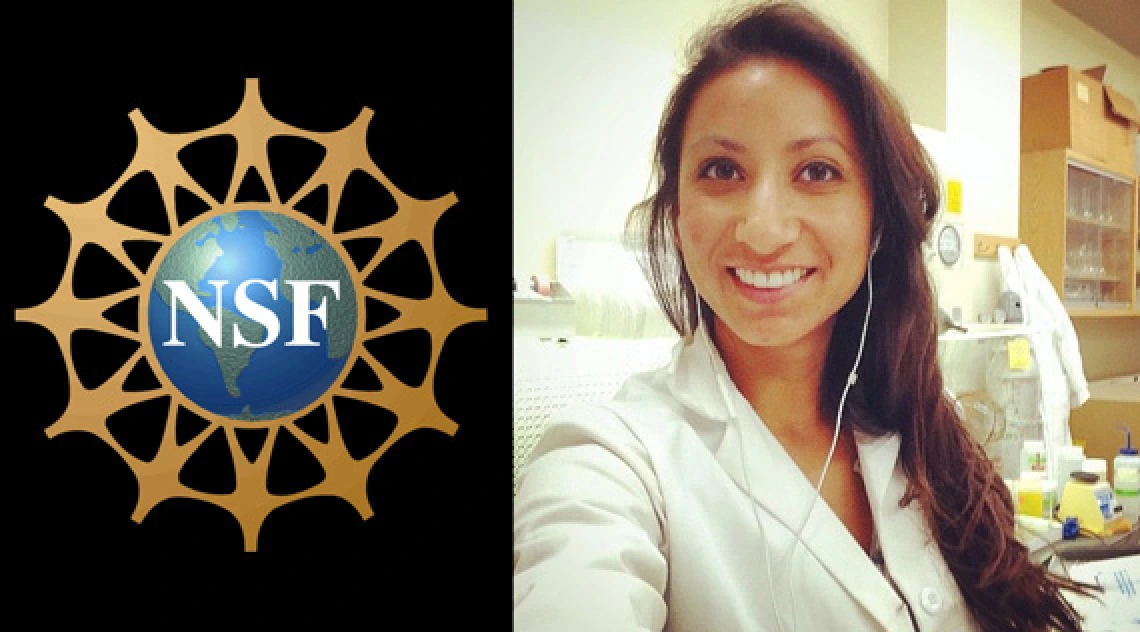Trainee Lydia Jennings Receives NSF Fellowship

 Lydia Jennings, University of Arizona Superfund Research Program (UA SRP) graduate trainee, has received a 2015 National Science Foundation (NSF) Graduate Research Fellowship Program (GRFP) Fellowship. The program supports outstanding graduate students who have demonstrated their potential for significant achievements in science and engineering research. As an NSF Fellow, Jennings will receive three years of funding support, including stipend, travel, and tuition, and will have access to a variety of professional development activities.
Lydia Jennings, University of Arizona Superfund Research Program (UA SRP) graduate trainee, has received a 2015 National Science Foundation (NSF) Graduate Research Fellowship Program (GRFP) Fellowship. The program supports outstanding graduate students who have demonstrated their potential for significant achievements in science and engineering research. As an NSF Fellow, Jennings will receive three years of funding support, including stipend, travel, and tuition, and will have access to a variety of professional development activities.
“My cultural beliefs, my love for running, and my passion to be outdoors laid the trail for my decision to study environmental science from an early age,” says Jennings. “In my tribes, the Huichol and Yaqui, we believe our elder spirits are personified in nature, and are connected to our present being.” As such, Jennings feels driven to combine her passion for environmental research with her commitment to engage and help communities understand and solve their environmental issues.
While completing her Bachelors of Science degree in Environmental Science, Technology and Policy, Jennings pursued a number of research opportunities in aquatic biogeochemistry during the academic and summer terms. After college, she took a position as an Environmental Toxicologist. Today, Jennings is performing her doctoral research in the environmental microbiology laboratory of Dr. Raina Maier, Director of the UA SRP. She was drawn to the group by the opportunity to focus on research that addresses an international and interdisciplinary environmental concern that impacts many minority communities: hardrock mining. Broadly, the research examines re-vegetation of active mine waste sites being brought to closure. Specifically, in her project “Microbial indicators as tools to evaluate mine waste reclamation,” Jennings will compare microbial diversity and the presence of plant growth-promoting activity in samples collected at different times from the Carlota Mine (KGHM International) in Globe-Miami, AZ. In addition, she is involved in the development and piloting of Mining and Environmental Educational Modules for Tribal Colleges.
Jennings hopes that the knowledge generated from her doctoral work will better inform the decisions of mining companies, as well as empower tribal communities impacted by mining. She credits the early education support she received with setting her on the pathway to success: “I owe a great deal of gratitude to the elders and high school teachers who encouraged and helped focus my passion for biology and ecology as I tried to better understand the environment around me.” Following completion of her PhD, Jennings plans to pursue opportunities that will allow her to train and nurture the next generation of native environmental scientists.
Congratulations, Lydia!

